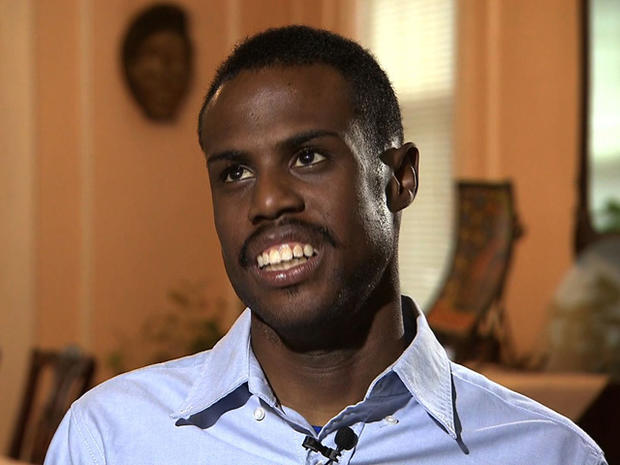Woman with Down syndrome becomes icon for disabled
Jenny Hatch has worked at a Virginia thrift store for more than six years.
“I love my thrift store,” she said.
The 29-year-old is meticulous -- making sure the shelves stay organized and the merchandise, fashionable.
“So the pink is, like, done now,” she said.She even runs the register, with a little help from her co-workers.
The store owners, Kelley Morris and Jim Talbert, have long been Hatch’s friends. Now, they are also her guardians-- the result of a landmark legal battle for her independence.
“I feel so much happy that I live here now because now I just come home and spend time with my friends,” she said.
Hatch, who has Down syndrome, wanted
to live with Morris and Talbert. Her mother and step-father wanted her to live
in a group home.
The case went to court. Jenny won.
“We had to change long held, you know, ingrained beliefs about what people with disabilities can and can't do,” said attorney Jonathan Martinis.
The judge granted Morris and Talbert temporary, limited guardianship over Hatch until August 2014. After that -- it's up to her.
“I don't think Jenny needs a guardian for everything in this world,” Martinis said. “I think, to quote Jenny, she just needs a little help.”
Since her court victory, Hatch has become an icon for the developmentally disabled. In October, she also became the face of a foundation: The Jenny Hatch Justice Project.
D.C. native Ryan King is their first client.
“Everybody needs a little help every now and then, but once you're independent, I think you're good to go,” he said.
When King turned 18, his family became his legal guardians. But his mother, Suzie, says her son doesn't need that level of supervision, so they're taking their case to court.
“We followed Jenny's story and we decided, well, why not try it ourselves?” Suzie King said. “We tried it before and even though we were turned down, we've decided to try it again.
When her guardianship expires next year, Hatch is still deciding what to do: Power of attorney, guardian or neither, she's won the right to choose.
“And I'm here to spread the message for disabilities,” she said. “I'm taking over.”
In the meantime, Hatch says she'll continue to get by – with a little help from her friends.


